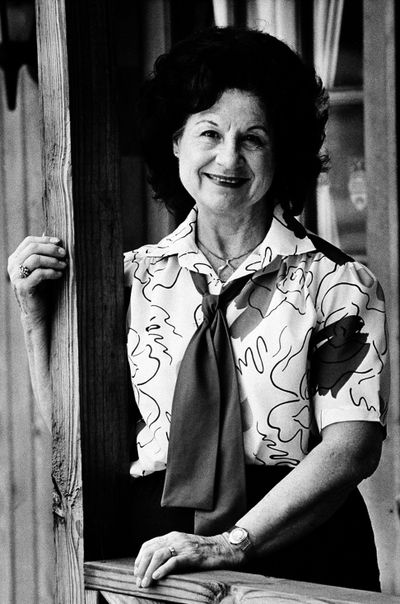Wells, country music’s first female superstar, dies at 92

NASHVILLE, Tenn. – Without Kitty Wells, there might be no Taylor Swift. Or Miranda Lambert. Or Loretta Lynn.
She was the pioneer, the first female singer with enough spunk and fire to get noticed in the male-dominated world of country music.
“Without her there wouldn’t be a lot of us,” said Country Music Hall of Fame member Jean Shepard.
The family of country music’s first female superstar said she died peacefully at home Monday after complications from a stroke. She was 92.
Dubbed “The Queen of Country Music” decades ago, Wells had been a member of the Country Music Hall of Fame since 1976.
For those who knew Wells, she was a powerful presence. Barbara Mandrell, a country superstar in her own right, said she appreciated Wells being a mentor.
“Kitty Wells was every female country music performer’s heroine. She led the way for all of us and I feel very grateful and honored to have known her. She was always the most gracious, kind and lovely person to be around,” Mandrell said in a statement.
Wells scored the first country No. 1 hit by a solo female artist with “It Wasn’t God Who Made Honky Tonk Angels.” Her success dashed the notion that women couldn’t be headliners. Billboard magazine had been charting country singles for about eight years at that time.
She recorded approximately 50 albums, had 25 Top 10 country hits and went around the world several times. From 1953 to 1968, various polls listed Wells as the No. 1 female country singer until Tammy Wynette finally dethroned her.
Her 1955 hit “Making Believe” was on the movie soundtrack of “Mississippi Burning” that was released 33 years later. Among her other hits were “The Things I Might Have Been,” “Release Me,” “Amigo’s Guitar,” “Heartbreak USA,” “Left to Right” and a version of “I Can’t Stop Loving You.”
Her solo recording career lasted from 1952 to the late 1970s and she made concert tours from the late 1930s until 2000, although she performed occasionally in Nashville and elsewhere afterward.
After her induction into the Hall of Fame, she also received the Pioneer Award from the Academy of Country Music and the Lifetime Achievement Award from the National Academy of Recording Arts & Sciences in 1991.